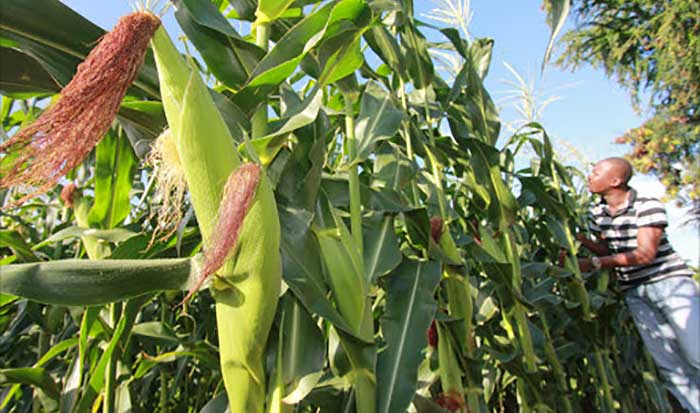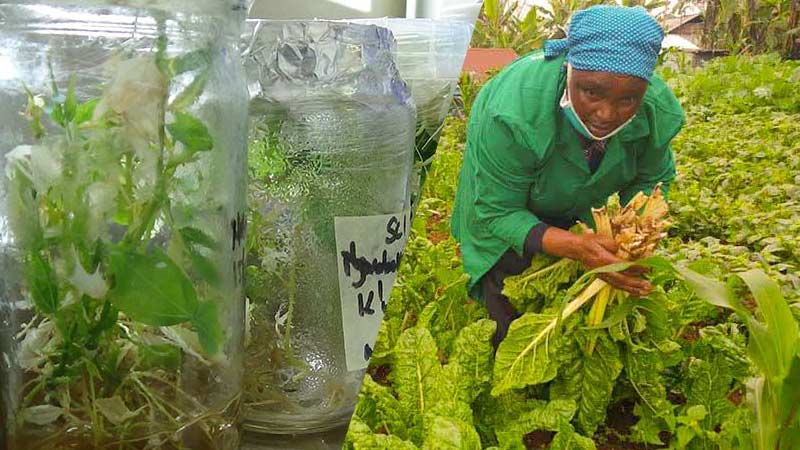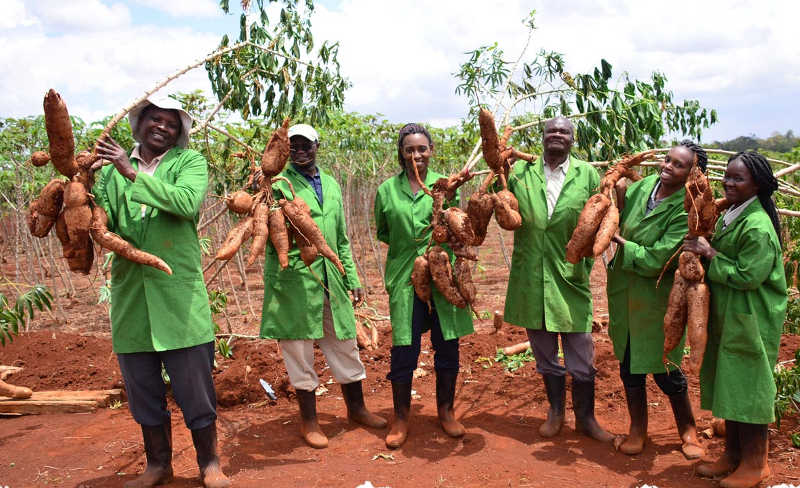Ugandan farmers are losing billions of money to their counterparts in America and other countries who produce high value goods used in the pharmaceutical industry.
Pharmacists are blaming the situation on lack of information, misconceptions and perhaps feet- dragging by the government especially in embracing the required technology including modern biotechnology that can facilitate the production of the inputs to supply the industry.
Maize starch
Opio Samuel Acuti, CiplaQuality Chemicals Chief Pharmacist, revealed that the pharmaceutical industry in Uganda imports maize starch valued around Ushs7.5 billion every year from the United States because in the US, the use of Genetic Modification, coupled with relevant infrastructure allows the production of pharmaceutical-grade starch relatively easily.
“Almost 60 percent of an ordinary tablet is starch. In the US, they grow a type of GM maize that has high starch content. A kilo of pharmaceutical-grade starch goes for five US dollars,” says Acuti.
According to Acuti, GM technology therefore offers farmers an opportunity to diversify their incomes by engaging into bio-farming to produce pharmaceutical inputs.
Indeed, scientific advancements especially the use of GM technology has radically transformed agriculture in the United States and other countries that have embraced it by enabling farmers to produce crops for diverse purposes. For example, apart from high-starch maize, American farmers now produce maize with high oil content or high protein content.
Artemisia annua
Artemisia annua, the crop from which the anti-malarial component known as Artemisinin – is extracted, according to Acuti, offers Ugandan farmers another window of opportunity to rise out of poverty.
But whereas the high-value crop has been found to grow well in East Africa, Acuti, notes that available varieties currently being grown in the region, yield lower quantities of the Artemisnin extract.
“Varieties currently grown in the region can yield about 6 percent of the artemisinin extract. But GM varieties can be developed to increase artemisinin content to about 10 percent or higher,” Acuti adds that a kilo of the artemisinin extract costs a handsome US$ 1000 ( Approximately three million Uganda shillings).
Eucalyptus tree
Eucalyptus tree, commonly grown in Uganda for wood fuel as well as acting as electricity poles, is of immense medicinal value especially in the formulation of anti-cough mixtures.
Acuti notes however that the common varieties of Eucalyptus grown in Uganda have low oil content, which can be boosted using GM technology by researchers to be used for pharmaceutical purposes.
According to Acuti, a litre of eucalyptus oil costs US$ 8 (Approximately Ushs 24,000).
Soya
Commonly grown in different parts of Uganda, Soy is a good source of protein needed for child development. In fact, its high-protein content makes it a priority ingredient by producers of baby foods in Uganda and other countries. Soy is currently one of the most globally traded food items in the world with the European Union, China and other Asian countries importing being major importers.
Its massive production in Uganda is hampered by weeding challenges. But GM varieties exist in the United States and other countries that are tolerant to weed killer Glyphosate.
GM animals for insulin production
While Uganda is still grappling with passing a law focusing mainly on regulating biotechnology in crops, Acuti points out that farmers in other developed countries are now focusing on producing GM animals with medicinal value.
Insulin is one of the commonest and costly products imported in Uganda for the treatment of people with diabetes. Acuti notes that the human insulin gene can be inserted into a cow to enable the animal produce milk or blood containing insulin, which is then extracted for human use.
“Previously, insulin was extracted from pigs, which was costly and not very safe because it was associated with high levels of allergies. Now however, if a human insulin gene is inserted into an animal, insulin can be extracted from the milk or blood of that animal.
A law to regulate the importation, production and distribution of GMO products in the country is currently in Parliament.
The government, together with majority of scientists want the law to enable the country tap into the many advantages of GMO revolution. But the law is opposed by NGOs, mostly funded by their European counterparts.
Recently, the bill has received support from influential caucuses of Parliament including from the ruling NRM caucus as well as the Uganda Women Parliamentary Forum.
If views expressed by MPs from those powerful caucuses is anything to go by, the bill is likely to pass before the end of the 9th Parliament.
But many in the field of human medicine including pharmacists express bewilderment at the high level of opposition to the adoption of GM in crops when people already use GM products for their own health.
“All these vaccines such as for HIV, or those given to children for controlling diseases such as pneumonia, are products of GMOs. We’ve been consuming GMOs for some time and I don’t know why people are opposed to the technology in crops, when they already use them for their own treatment,” wondered Acuti.









